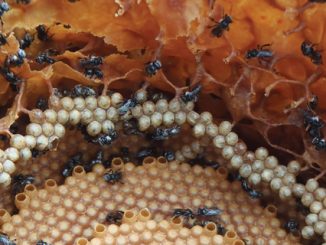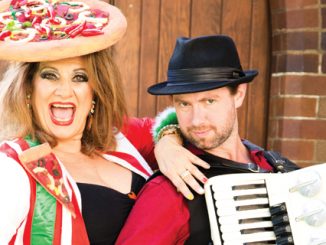
Melissa Leong shares the lessons she has learnt whilst hunting and gathering for her next meal.
Last week, I went back to Tasmania to hang out with a few buddies and (cue vegan outrage) go hunting. To be clear, I don’t consider hunting to be sport, but rather a means of sustainable agriculture and keeping the balance of life and productivity in a rural sense. It’s a tradition and a way of life that those living in country areas have nurtured and respected for many generations in that part of the world and it is a great privilege to be privy to it. We shot and cooked hare and venison, as well as scrounged for local pests such as nettles, from which to make a kind of feral salsa verde to go with our pot roasted hare, venison tartare and jungle curry of roasted venison haunch.
Why do I partake in such things? Because I believe that it is important to know where your food comes from.
A chef friend recently had a ‘bring dad to school day’, and Kindergarten kids asked all manner of questions about his job, including what he cooked. Chicken, sure. Vegetables, well of course. Rabbit, on the other hand was met with “NOT BUNNIES!” Well, why not? Obviously he wasn’t advocating taking Fluffy from the backyard hutch and stuffing him into a pot, but it does beg the question of how acquainted non-rural kids are with the notion of where their food comes from.
As a kid who grew up in the suburbs of Sydney to Singaporean parents, you can bet your bottom dollar that I didn’t question (or know) where my food came from. This disassociation, to my mind, isn’t a good thing. Some may consider it macabre, but once you’ve witnessed where your food comes from – be that how long it takes to grow a radish, gather mushrooms in the forest, or shoot your lunch – chances are you’ll be less wasteful and more respectful when it comes to cooking and eating it.
This issue’s theme is about backyard pets. They’re part of the family, sure, but if there’s an opportunity to educate your kids in the form of keeping chickens for eggs, or even explaining that indeed Fluffy’s cousins (if not Fluffy himself) can be food, it’s a lesson to consider. Shock may be less palatable than sugar coating, but then again, information can be empowering, even to the youngest members of our families.
Melissa Leong, www.fooderati.com.au



